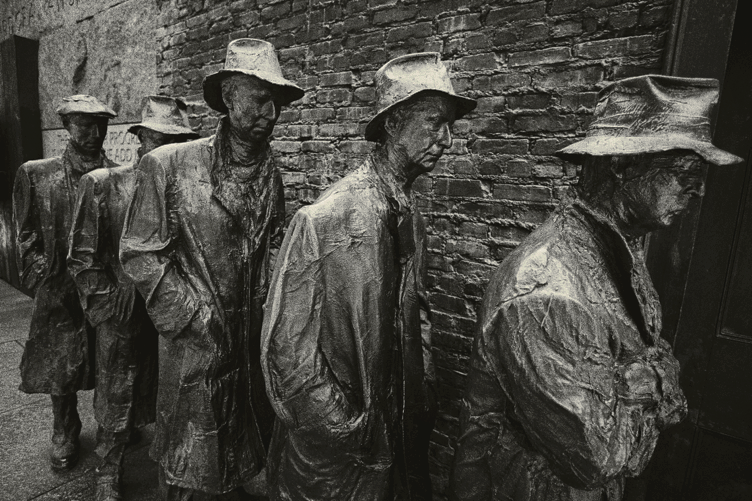The COVID-19 pandemic has had a serious effect on most businesses, particularly those engaged in the retail, travel and hospitality industries. Many of them have had to furlough a significant number of employees — putting them on unpaid leave, often with government financial support.
As the situation starts to ease and the economy is coming out of lockdown, companies are now beginning to re-hire staff who have been laid off. However, this is not a simple process of just telling them to turn up for work as normal and continue as before. Many things have altered and businesses need to allow for this and may have difficult decisions to make.
The Changing Relationship between Companies and their Staff
As a result of the pandemic, work situations will have changed, and this may have a significant effect on both the company and its employees. Even though the economy may be starting to move again, recovery will be slow, and activity may take a long time to reach previous levels. Consequently, you may not be able to offer people the same positions as before and this may be reflected in the level of pay and benefits available.
The changed situation may give you the opportunity to review the relationship between the company and its employees so that the offer you make can be fair to both. That may mean looking again at contracts and agreements, at pay levels and associated benefits that include sick pay and holiday entitlement. This is particularly relevant if people are likely to be working remotely more often, which will affect travel and productivity.
The return to work may involve changes to the duties of individuals, revised schedules, amendments to procedures and totally different working arrangements that may include more remote working. This may require a complete revision of contractual agreements that may need to be re-signed. At the same time, you may want to re-verify an employee’s eligibility for work, conduct background checks again and generally reassure yourself that everything is in order.
Making Employees Feel Safe
Changes may require that you send an offer letter to each re-hired employee, setting out revised terms and conditions. Of course, some staff may not be happy to return to work, either because they don’t accept the revised conditions or because they have health issues and are concerned about their safety.
Effective communication is often the key to employee relations, and this is no exception. You need to assure employees that you are concerned about their well-being and demonstrate this by:
- following social distancing guidelines through revised working practices
- setting up stringent cleaning and sanitisation procedures
- providing equipment for safety and hygiene
- having a plan of action should further infections occur
- creating policies for contact tracing, travel and heath regulation compliance.
If employees know their physical and mental well-being is cared for, they’ll feel safer, be happier to return to work and you’ll have a more stable and productive workforce.
The Commercial Environment Has Changed
Before the pandemic started in Australia, there were already economic challenges appearing with some industries feeling the effects of a struggling economy. After the pandemic started, the situation deteriorated rapidly and many industries and related businesses effectively closed down or had to put into a holding pattern. The politicians suggested that come August and September the economy would be able to ‘restart’ almost as normal.
However, this is not the way it is turning out. Victoria has been back in lockdown, many international economies are experiencing second waves of illness and their economies are suffering as a result, our borders are closed for both in and outgoing passengers for the foreseeable future. Most importantly, the expectation that the economy would bounce back following a ‘defeat’ of COVID by the second quarter of the financial year evaporated. In fact, politicians are now changing the message that COVID is going to be a long-haul problem.
This means that the activities and needs of businesses will be different from before, at least for quite a while. Businesses will be working with:
- Smaller revenues
- Smaller workforces
- Workforces with different proportions of skillsets
This will be difficult because:
- Some people will not get back to their old job
- Businesses will need to make hard choices to ensure their own survival
- Some businesses will fail
Conclusions
There are no overarching solutions to these problems and possibly this is an evolutionary step – only those businesses that can adapt will survive. Of course you want to be one of those businesses to survive and the things that will need to be considered include:
- Being aware of the current environment and developing short, medium, and long-term strategies to survive and thrive
- Making decisions for the benefit of the company and being prepared to reduce the size of your workforce no matter how hard that might be
- Ensure that the work force that does remain is properly skilled with the competencies to ensure your operation is as efficient as it can be
- Ensure that you have done everything you can to have a workplace that is COVID safe – at least as much as that can be, and have pre-planned strategies to deal with a break-out when it does occur
- Look for new opportunities to pivot your business and take advantage of revenue that you had not previously considered.
Dr Schultz spent 22 years working in psychiatry and then went on to qualify as a lawyer. He has spent 34 years helping people solve problems and the unique combination of medicine, psychiatry, law and mediation provides a unique academic and practical approach to life's challenges.









